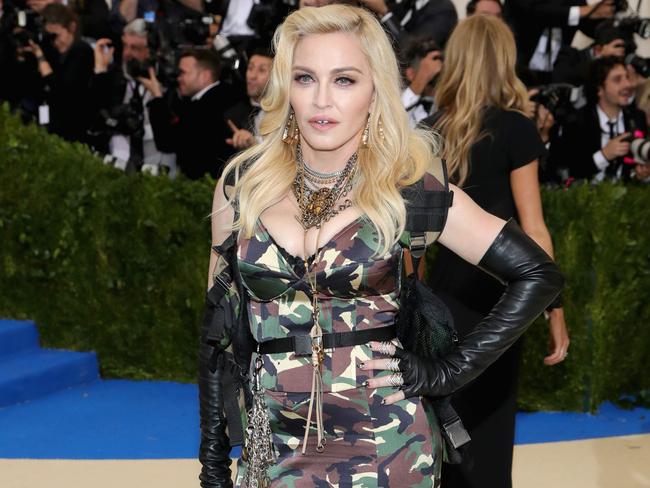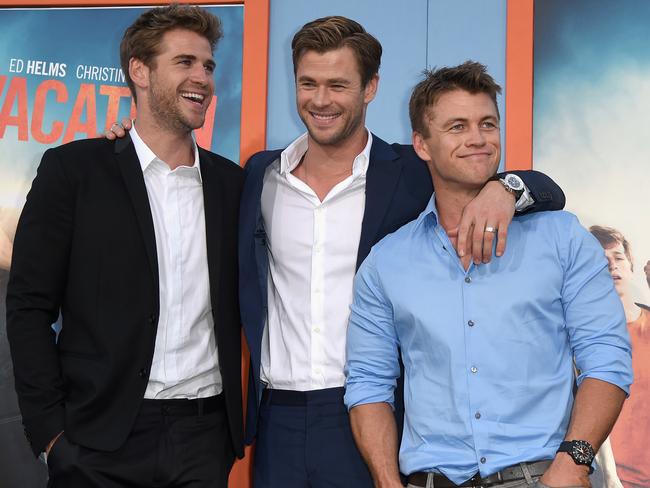Sibling wars: Feuds and triumphs of the rich and famous
THEY’RE the longest and most important relationship we’re likely to have, yet for many, siblings can also be the hardest people to get along with. Just ask some of the celebrity siblings out there, like The Veronicas twins Jess and Lisa Origliasso.
Lifestyle
Don't miss out on the headlines from Lifestyle. Followed categories will be added to My News.
SIBLINGS — they’re the longest relationship we’re likely to have, yet for many they can also be the hardest people to get along with.
From niggling habits we might overlook in friends but drive us crazy in a sister, to a brother who will only agree to family gatherings on his terms — close to his home at a time convenient to his family — or a sibling who is never on time or cancels at late notice without reason, they can often feel like hard work. And that’s aside from any betrayal.
We should all feel grateful we don’t have Christopher Ciccone for a sibling. The younger brother of Madonna — once a close part of her entourage — enacted the ultimate revenge on the singer by releasing a tell-all book, Life With My Sister Madonna, betraying many of her closely held secrets and painting her as a cold and dismissive diva.

Then there’s the jealous rivalry between Liam and Noel Gallagher that tore apart Oasis — and continues to flare up today in the pair’s regular public digs at the other almost 10 years on.
For most people, however, the frustrations are likely to arise from minor wrongs that build up over time and baggage from childhood grievances we’re loath to leave in the past.
Another pair who share a volatile relationship are twins Jess and Lisa Origliasso. The latest drama erupted last year after Jess’s then partner Ruby Rose claimed Lisa had allegedly told them to “get over” their pursuit for marriage equality, saying they should feel lucky they don’t get “stoned to death”.

Jess later backed this up with her own statement saying she’d been hurt by someone close to her “degrading my sexuality because of their own personal judgments or ignorance”.
The pair traded public jabs and unfollowed each other on social media, but they have since made up.
There are, however, plenty of examples of positive celebrity sibling relationships. One of the strongest is the Hemsworth brothers. Luke, now starring in Westworld, Chris, aka Thor, and Liam, best known for the Hunger Games, have independently found success in Hollywood, while continuing to support one another.
MORE STORIES
AUSSIE SPORTING HEROES: ATHLETES INSPIRING A NEW GENERATION
AUSSIES ARE OBSESSED WITH TRUE CRIME STORIES AS PODCASTS GAIN POPULARITY
And in a true testament to their bond, youngest Liam appears to have held no ill feeling towards Chris for landing the role of Thor for which both brothers auditioned.
Luke recently shared how close the trio were, telling BW Magazine: “We all have a very good relationship. We bounce ideas off each other all the time and we’re always going backwards and forwards about what we should be doing and what we’re not doing.”

Relationships Australia couple and family therapist Jenny Douglas says adult siblings can often still operate on childhood templates.
This, she says, can cause us to think we know each other, but are actually assuming that person has kept the same attitudes and beliefs they held growing up, which is rarely the case. Long-held hang-ups, such as believing one sibling was favoured, also often don’t shift with age. She explains why we can be less forgiving of what we deem “bad” behaviours in siblings.
“We can be less patient with family members and expect them to know what our needs are and to share the same goals,” Douglas says.
“I think with friendships or other relationships outside them, with family we’re much more prepared to share what our needs are and to communicate, so we’re on the same page. The default position with siblings is they should know better.”
Birth order can also play a part. The eldest who will have enjoyed years of their parents’ undivided attention may resent a younger sibling for years to come, while a younger sibling may feel their opinion is less valued.
Interestingly, psychologist Julie Fitness from Macquarie University says there is truth to the belief middle children lose out, saying they are typically less favoured.
Fitness says another wedge can develop from comparisons made by teachers and parents that leave a sting for decades and can breed resentment where one sibling feels they received less love and affection or had it tougher growing up.

The forced proximity in childhood also means siblings know exactly which buttons to push, and when high stress situations arise in adulthood, such as a sick parent or splitting inheritance, this can make people quickly revert to less desirable interactions.
“At that point all the rivalries you typically had growing up, those buttons are pushed again, and with the stress of the situation, all the maturity can go out the window, and people can find themselves very much as they were as a child. Everything is magnified,” she says.
Which makes it doubly important to try to understand each other’s perspective, despite siblings likely holding different memories of family events. Another barrier can be having little in common, outside of growing up with the same parents, which can throw up personality clashes or cause siblings to naturally drift apart.
We can be less patient with family members and expect them to know what our needs are and to share the same goals
Alexander C. Jensen from Utah’s Brigham Young University has focused much of his research on sibling dynamics and says as children we can often deliberately seek to be different to a sibling in order to gain parental attention. Which can explain some of these personality clashes as adults.
“If you want to be different and fill your own role in a family, then it may annoy you that you have many similarities with your sibling. What it means for you as an individual depends on what your sibling is like,” he says.
“If you want to be different from a sibling who valued education and worked hard in school, you may be less inclined to do so. On the other side, if your sibling is kind of lazy, and you want to be different, you may be inclined to work hard.”
He says parents can play a role in both sibling conflicts developing as children and continuing as adults.
“A lot of my work has focused on parental favouritism. When parents play favourites it has been linked to siblings fighting more. My opinion is that continues into adulthood. In adulthood some parents try to play a role as a mediator and help siblings resolve conflicts, sometimes it works, sometimes it doesn’t. In other cases, siblings just stop talking to each other.”
His research has put the number of adults who cut contact with a sibling as high as 10 per cent.
